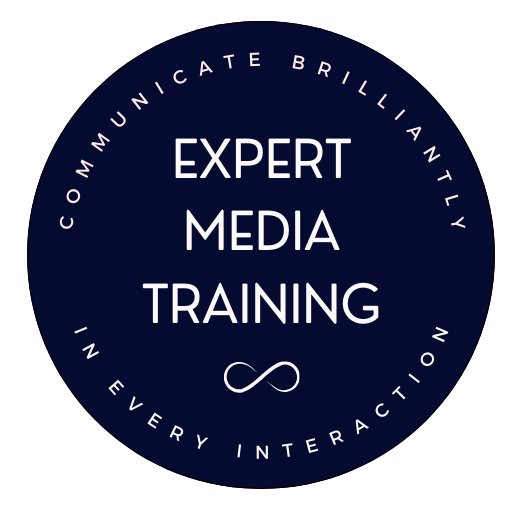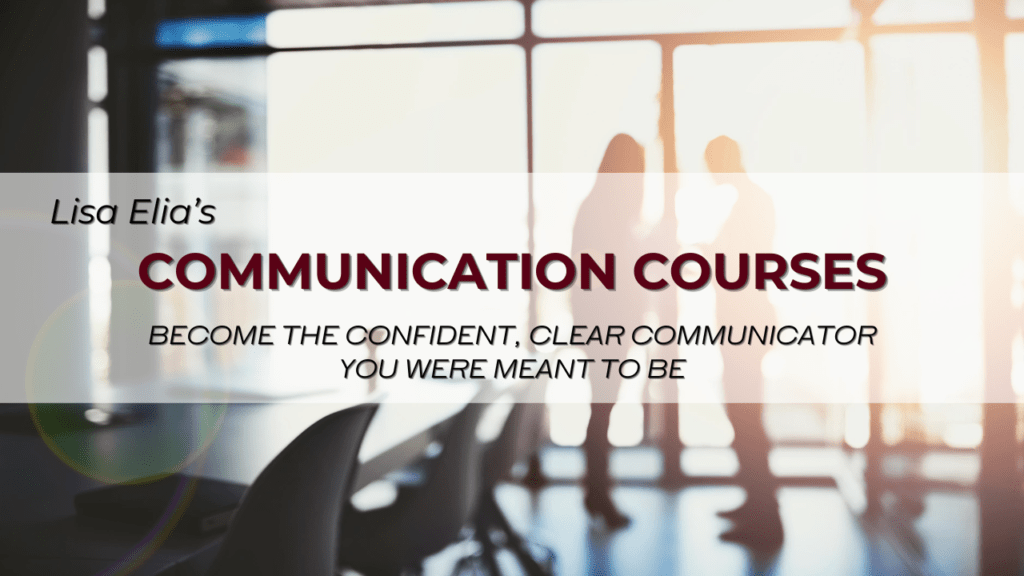

Media Interview Video Tips
 With the increase in opportunities for people to be interviewed by a variety of outlets, more people are becoming aware of the need for media training. As more people begin to make their own videos they may also see that it’s not always as easy as it looks to deliver content in a smooth, engaging way. Add to this the pressure of being asked questions by an inquisitive reporter and you could have a nerve-racking situation. BUT, that doesn’t have to be the case.
With the increase in opportunities for people to be interviewed by a variety of outlets, more people are becoming aware of the need for media training. As more people begin to make their own videos they may also see that it’s not always as easy as it looks to deliver content in a smooth, engaging way. Add to this the pressure of being asked questions by an inquisitive reporter and you could have a nerve-racking situation. BUT, that doesn’t have to be the case.
Like anything else you want to master, learning to handle interviews well just takes practice and guidance. Being a great speaker from the stage or being comfortable making your own promotional videos is not the same as being ready for a media interview.
Here’s my analogy. Rocking out on the dance floor is to the dancing the tango beautifully, what creating your own videos well is to being great in a media interview. To explain: you may be someone who’s comfortable and even looks good freestyling on the dance floor (like creating your own videos). But, would you be able to do the tango without lessons and practice? The tango is precise and intricate and it takes practice to make it smooth and crisp (like being able to answer questions concisely, without hesitancy and with great energy).
Just as you would get training if you wanted to do the tango well, you should get media training if you want to interview well.
You may have seen my other media interview video tips, and this one will give you more to think about.
Watch the media interview video below for some quick media training tips.
Here are more resources you can access on our site.
Frequently Asked Questions about Media Training
https://expertmediatraining.com/faqs-about-media-training/
Media Interview Checklist from a Los Angeles Media Trainer
https://expertmediatraining.com/media-interview-checklist-from-a-media-trainer/
How to Create an Online Press Room That the Media Will Love
https://expertmediatraining.com/online-press-room-tips-from-media-trainer/
Prepare for TV Interviews BEFORE You Book One – Tips from an LA Media Trainer and Spokesperson
https://expertmediatraining.com/prepare-for-tv-interviews-media-trainer-tips/
Mistakes to Avoid in TV, Radio or Print Interviews
Many years ago, when I was working as a publicist, I had a client who INSISTED that she didn’t need media training because she had been interviewed by the press and had created some of her own promotional videos. When I booked her on an NBC segment, she was unaware that a second camera was on her while the interviewer spoke. What was caught on camera? It was my client looking down at the ground, appearing disengaged. NOT GOOD! Easily avoidable media interview mistakes like this are the reason I now insist on media training my clients, or at least doing a mock interview or two with them, to make sure they’re truly camera-ready and media-ready.
If you plan or hope to be interviewed by media outlets, from the smallest online radio shows to the largest national TV shows, I encourage you to invest in media training from an experienced pro, so that you become aware of media interview mistakes that can be avoided. In the meantime, this article will help you avoid some of the most common mistakes people make in media interviews.
These are five media interview mistakes to avoid:
Media Interview Mistake # 1: Assuming you’re “a natural” because you’re a good public speaker or you’re good at making your own promotional videos. When you control the situation, it’s much easier to shine. When you have the pressure of answering questions quickly with cameras on you or a live audience listening in, it can be much more challenging and can fluster even the most confident people.
Tip: Practice being interviewed by a challenging interviewer. (When I conduct media training sessions, one of the many things I do is to play “jerky reporter” and ask tough, sometimes obnoxiously rude questions and then I help you develop answers and strategies to deal with this type of situation in the real world.)
Media Interview Mistake # 2: Providing long, meandering answers to questions. Many TV and radio interviews are very brief, lasting just a few minutes. So, you have to provide concise, meaningful responses to questions. Brevity is important in print interviews, too. A magazine editor I know said that one interview subject she spoke with went on and on about himself for so long during a telephone interview that she stopped taking notes and started cleaning her house…while he was still blabbing on about himself. Don’t be THAT person.
Tip: Get your messaging down. Think of answers to the most common questions you think you will get and rehearse them, but not word-for-word; just get the content down. (Messaging is one of the first things I work with clients to develop. It informs everything, from the way we develop your press kit materials, to the verbiage used on your web site, to the way you introduce yourself to people.)
Media Interview Mistake # 3: Not knowing enough about the media outlet and its audience. The more you understand the media outlet you’re being interviewed for, the better able you will be to communicate with the interviewer or host appropriately and provide examples or anecdotes that suit the outlet’s audience.
Tip: Research the media outlet and the interviewer prior to your interview. If you’re going to be on a TV show, watch it. If you’re going to be on a radio show that you’re not able to access, spend time on the station’s web site to get a feel for it. Read any print publication where you will be interviewed and, in particular, read articles authored by the person who will be interviewing you.
Media Interview Mistake #4: Trying to be funny when you’re not. Not everyone has the gift of good comedic delivery. While humor is welcomed in many interviews, don’t try to force it because it won’t come off well.
Tip: Be the best version of yourself. Don’t try to be someone you’re not. Sometimes a straightforward, clear interview is EXACTLY what the outlet wants and EXACTLY what will attract potential clients or speaker bookers or sponsors who may be watching or listening to you.
Media Interview Mistake #5: Being unaware of the camera. You can’t just BE on camera and forget about, although the most polished show hosts and guests make it look that way.
Tip: Ask how much of your body is included in the shot and where the camera operator wants you to look. Sometimes you will be asked to look at the camera, sometimes next to it and sometimes somewhere else. It varies from show to show.
There’s much more to share about techniques to control your nerves and manage your energy, how to deliver your message in pyramid form, how to incorporate a call to action and lots of other techniques. However, true media training is experiential. There’s nothing like being in the process and learning in a hands-on (or on-camera) way.
By dodging these media interview mistakes, your interviews will run smoothly, and you’ll be more likely to be interviewed again!
Share these media interview mistakes to avoid on social media, by using the share buttons below.
Now that you know some of the most common media interview mistakes to avoid, do you need additional media training resources?
Here are some resources that you can access on our site.
Prepare for TV Interviews BEFORE You Book One
https://expertmediatraining.com/prepare-for-tv-interviews-media-trainer-tips/
Media Interview Checklist
https://expertmediatraining.com/media-interview-checklist-from-a-media-trainer/
Media Training Resources
https://expertmediatraining.com/media-training-resources/
Top 10 Media Relations Tips – Media Training Tips
https://expertmediatraining.com/media-training-tips-for-good-media-relations/
Frequently Asked Questions about Media Training
https://expertmediatraining.com/faqs-about-media-training/
If all the world’s a stage, own it while you’re on it!


